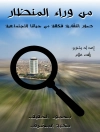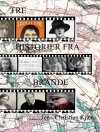In ‘The Americans’, Hugo Münsterberg explores the intricate fabric of American culture at the turn of the 20th century. Through a series of analytical essays, he delves into the psyche of the American people, juxtaposing their values, beliefs, and social behaviors with prevailing European norms. Münsterberg employs a psychological lens, pairing empirical observation with philosophical inquiry, which enriches the narrative. The book is not merely a descriptive account; it offers a profound critique of American society’s individualism, idealism, and the burgeoning influence of technology, placing it within the broader context of shifting cultural paradigms in the early 1900s. Hugo Münsterberg, a prominent psychologist and philosopher originally from Germany, emigrated to the United States in 1892. Influenced by both his European academic background and his experiences in America, he sought to bridge psychology with the arts and humanities. His keen insights into the social dynamics and psychological motivations inherent in American life stem from a deep understanding of the tensions between European traditions and the developing American identity. Readers intrigued by the complexities of cultural identity and the psychological underpinnings of society will find ‘The Americans’ an essential work. Münsterberg’s exploration of American life is both timely and timeless, making this book a thought-provoking addition to any scholarly collection.
关于作者
Hugo Münsterberg was a German-American psychologist, who is perhaps most renowned for his pioneering work in applied psychology, particularly within the fields of clinical, industrial, and legal contexts. Born on June 1, 1863, in Danzig (now Gdańsk, Poland), Münsterberg pursued his academic interests under the tutelage of Wilhelm Wundt, a prominent figure in the establishment of psychology as a distinct science. After earning his doctorate at the University of Leipzig, Münsterberg was invited by William James to join the faculty at Harvard University, where he served from 1892 until his untimely death in 1916.
Münsterberg’s literary contributions extend beyond his technical work in psychology. His book ‘The Americans’ reflects his transatlantic insights and experiences, discussing cultural and societal nuances of American life from an immigrant’s perspective with astute observation and often critical analysis. This work, alongside others such as ‘Psychology and Life’ and ‘Psychology and Industrial Efficiency’, demonstrate Münsterberg’s broad interests and his skill in communicating complex ideas to a general audience. His writings often capture the stylistic nuances of his era, with a clear and persuasive prose that sought to bridge the gap between scientific inquiry and the layperson’s understanding of human behavior. Münsterberg’s influence extended into cinematic theory, where he explored the psychological underpinnings of film and its effect on audiences, making him a multi-disciplinary figure in early 20th-century intellectual circles.












